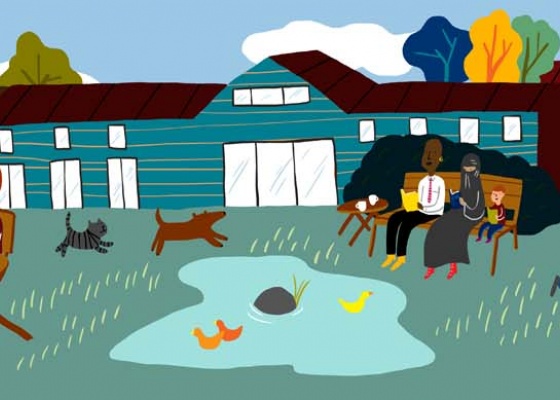Mental health problems are as common in older adults as they are in younger adults but for many reasons, older people are far less likely to tell their GP. When they do, they will often describe physical rather than emotional symptoms. Depression is the most common and most treatable mental illness in old age. It affects one in five of us living at home, and more of us with a long-term condition or who are residents in hospitals and care homes. Symptoms of anxiety are present in one in twenty people and very frequently exist alongside depression.
People who experience anxiety often feel restless, have a sense of dread, feel on edge a lot of the time, find it hard to concentrate and feel irritable.
People who are depressed may often feel, low in mood or sad, feel tearful, feel guilty, have no motivation, find it difficult to make decisions and feel like they are not really getting any enjoyment out of life.
We can all feel low or anxious from time to time. If you’re going through difficult times or you’re feeling sad, or you recognise yourself in the above symptoms, you should seek help from your GP or healthcare professional and get support early on.
We should remember that in both grief and depression we cry, we feel low, we might have trouble sleeping, have a poor appetite and may not feel like doing anything and see no joy in life. So, if you have been bereaved and feel like this for what seems to you like a long time, talk to your GP.
One of the most common noticeable effects of depression and anxiety is losing interest in food and a gradual or rapid weight loss.
What can we do?
- Recognise how you feel. Don’t brush your feelings under the carpet and hope it will sort itself out – symptoms are likely to get worse if you don’t act.
- Having depression or anxiety is similar to a physical health condition, and it can be successfully treated.
- Seek help from your GP or practice nurse.
- Tell a friend or relative if you want to – it may help.
- There may be a range of services in the local community where you can meet new people and learn new skills. This will give you something to look forward to, and prevent you feeling isolated or alone.
- Contact your local Age UK or community hub; they can help you find an activity or group that will suit your interests. https://www.ageuk.org.uk/services/in-your-area/
If you need someone to talk to, the Samaritans are available all day every day on 116123.
The Cruse Bereavement Care Freephone National Helpline is staffed by trained bereavement volunteers who offer emotional support to anyone affected by bereavement. The number is 0808 808 1677.

